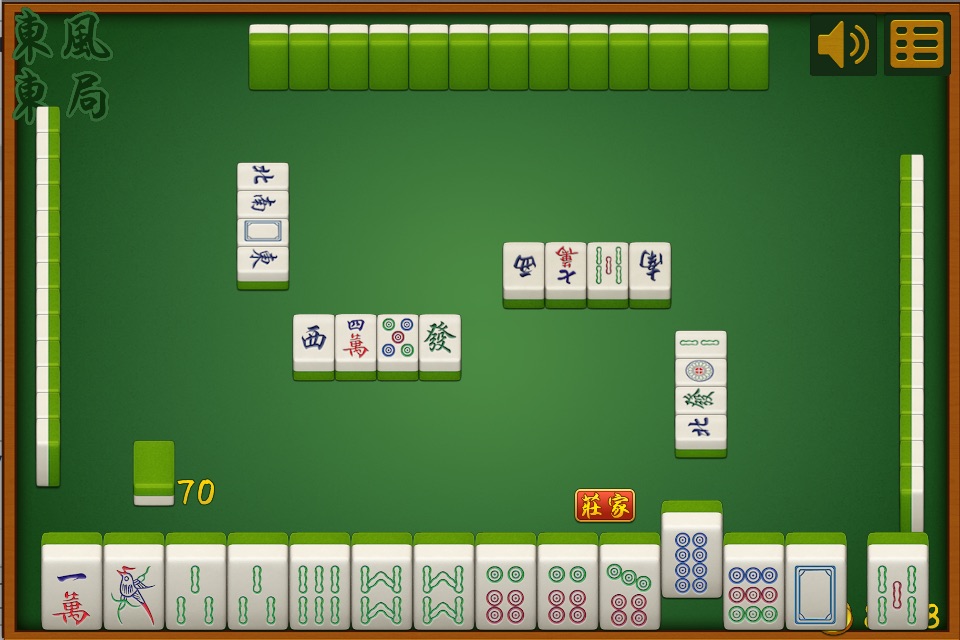
real mahjong game, world series of mahjong,international mahjong.Top rated majhong game in china so far.There is a Detailed instruction in game,you can learn to play Mahjong even if you never heard of it before. Special auxiliary functions can also assist you to play this game.Its really awesome,download and enjoy it now !!!
Mahjong is a game that entails four players. At the start of the game, a player is the dealer. The meaning of the dealer lies in that he can have 14 tiles, while other players can only have 13 ones.The game is over after each of the four players has acted as the dealer in turn for four times.
The purpose of Mahjong is to gather together four sequences or triplets with 14 tiles, plus a couple of pairs (few special points are not composed of sequences and triplets, see the introduction about points below). Each sequence or triplet is composed of three tiles, while the pair of two same tiles. The so-called sequence consists of three tiles of consecutive numbers, such as Character Three, Character Four and Character Five, while the so-called triplet of three same tiles. The one that first gathers together four sequences or triplets and a couple of pairs (or special points) wins. The other three must give the winner money in different amounts according to points.
At the start of the game, the dealer discards the most useless tile, while all other three players are entitled to have the discarded tile. The dealer’s opponent on the right (player on the right) has the right to chow, pong or kong that tile, while the other two players can only pong or kong it. To chow means that if you want to gather together a sequence, and you already have two tiles of the sequence, for example, you already have Bamboo Four and Bamboo Five, while your opponent on the left happens to discard Bamboo Three, you can chow it to gather together a sequence. To pong means that if you want to gather together a triplet, and you already have two tiles of the triplet, for instance, you have had two tiles of Dot Nine, you can pong if anyone discards Dot Nine. To kong means that if you already have a closed triplet, say, you already have three tiles of Character Five, you can kong if anyone discards Character Five. If the players want to chow, pong and kong at the same time, the one wanting to pong or kong has the priority. Anyone that chows, pongs or kongs must expose the tiles chowed, ponged or konged without making any change. If one discards a tile, but nobody chows, pongs or kongs, the opponent on the right can withdraw a tile from the stack, which is called drawing. There is another situation of kong:if you have an triplet(exposed or closed), say, you already have three tiles of Dragon Green but you draw a tile of Dragon Green when drawing, you can also kong. The player konging tiles must withdraw a tile from the end of the stack. Of course, no matter whether you chow, pong or draw, you must discard a tile after the action to maintain 13 tiles.
After the tiles in your hand are all useful and you only need the fourteenth one to win, and now you are in the stage of ready hand. For example, you have gathered together three sequences, a triplet and a tile of East Wind, you can declare a win if anyone discards or you self-draw a tile of East Wind (you have to gather together special tiles in case of winning special points). In many cases, you can wait for more than one necessary tile, which will grant you more opportunities to win. For example, if you have gathered together two sequences, a triplet and a couple of pairs, and there remains an incomplete sequence of Character Two and Character Three, you may wait for Character One or Character Four to win.


